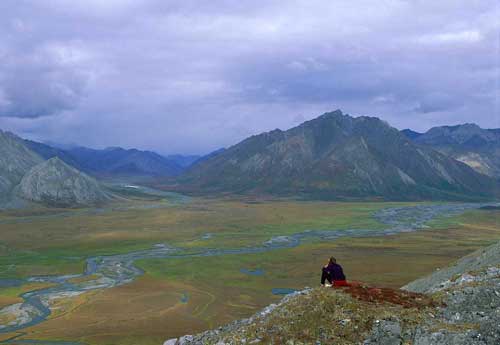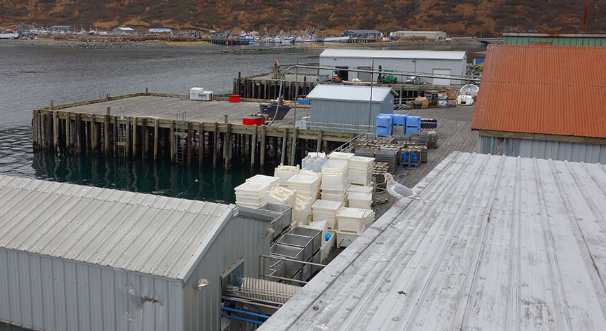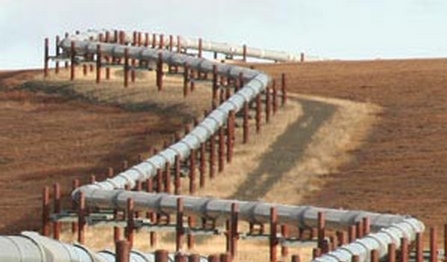Recent attempts by the Trump administration to allow drilling in the Arctic National Wildlife Refuge and to bail out oil companies during the COVID-19 pandemic with taxpayer money, as well as its criticism of banks’ decisions not to fund Arctic oil and gas development, are hugely unpopular with American voters.
According to newly completed public opinion research, drilling in the Arctic Refuge is incredibly unpopular across the political spectrum. Moreover, the notion of the federal government helping oil companies with taxpayer dollars and special allowances to exploit public lands for private profits is not popular with most Americans. And the recent movement by banks like Wells Fargo, Goldman Sachs and Morgan Stanley to commit to not funding drilling in the Arctic Refuge is supported by a broad swath of people.
Climate Nexus Polling, in partnership with the Yale Program on Climate Change Communication and the George Mason University Center for Climate Change Communication, conducted a nationally representative survey of 2,119 registered voters in the United States June 6-8, 2020. You can find the national poll crosstabs here and the toplines here.
Only 1 in 5 think the Trump administration should open the Arctic Refuge for drilling by oil companies.
An abysmal 22% of voters think the Trump administration should open the Arctic National Wildlife Refuge for drilling by oil companies — almost three times as many (61%) oppose this action. Only 19% of Independents and 17% of female respondents support the Trump administration’s efforts here, and even among Republicans 46% oppose oil drilling in the Arctic Refuge versus 35% that support Trump’s push.
Voters, including large majorities of Republicans and Independents, overwhelmingly support banking policies that reject funding for Arctic oil and gas, including in the Arctic Refuge.
[content id=”79272″]
More than a dozen U.S. and International banks including Goldman Sachs, CitiGroup, Morgan Stanley, Wells Fargo, JP Morgan Chase and Barclays have introduced policies that rule out investments in Arctic oil development, including development in the Arctic Refuge. Only 17% of respondents oppose those policy changes by banks — including just 15% of Independents and 21% of Republicans. Additional info:
- In total, respondents support banks’ actions by a 68-17 margin.
- Democrats support banks’ actions by a 75-14 margin.
- Independents support banks’ actions by a 70-15 margin.
- Republicans support banks’ actions by a 60-21 margin.
- Women support banks’ actions by a 68-14 margin.
Intensity is much higher for voters that support banking policies that reject funding for Arctic oil and gas, including in the Arctic Refuge.
Of the 68% of respondents that support banking olicies that rule out funding Arctic oil development, including development in the Arctic Refuge, 48% “Strongly Support” those policies, versus just 7% that “Strongly Oppose.”
More generally, support for oil company bailouts due to COVID-19 pandemic is incredibly low.
Only 28% of voters support using taxpayer dollars to bail out oil companies, compared to 63% that oppose. 66% of Independents, 68% of female respondents and even 54% of Republicans oppose bailouts.
This new polling data reinforces what previous polls have shown — that allowing oil and gas development in the wildest place left in America, the Arctic National Wildlife Refuge, is incredibly unpopular with voters from across the political spectrum. It also reflects the growing dissatisfaction that Americans have with repeated actions by the Trump administration and Congress to continuously support fossil fuel industries at the expense of addressing climate change, all in the name of “energy dominance.” And it reflects overwhelming public support for banks making commitments not to finance Arctic Refuge drilling.
Major banks are responding to requests from the Gwich’in people, whose cultural survival depends on the protection of these lands they consider sacred. They are responding to the vast majority of Americans who oppose drilling in our nation’s largest and most iconic wildlife refuge and a haven for calving caribou, denning polar bears and nesting migratory birds. And they are responding to real world economics, because making a long-term bet on extracting oil from one of the most remote landscapes on earth makes little business sense, especially when considering the necessary transition to cleaner sources of energy.
###







